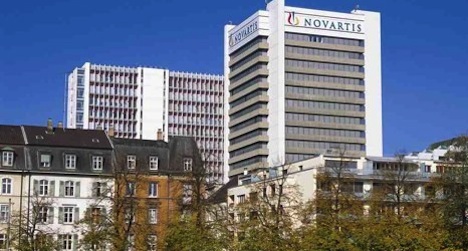The company on Thursday announced a 180-degree turn in its plans for the Prangins over-the-counter (OTC) drugs production facility, which it had earlier planned to shut down, with hundreds of layoffs.
Pascal Brenneisen, president of Novartis Switzerland, said investments of 60 million francs over the next three years and a further 90 million francs between now and 2020 would assure the plant's future, while turning it into a “centre of excellence”.
The announcement was made in the presence of Swiss economy minister Johann Schnedier-Ammann and Pierre-Yves Maillard, president of the Vaud cantonal government.
Basel-based Novartis faced large demonstrations from employees when it first announced 18 months ago that it intended to close the plant and lay off 320 people.
But then it negotiated with workers, who agreed to forgo pay increases and to work longer hours, while local governments provided temporary tax breaks.
Novartis said its latest decision goes beyond an earlier announcement to maintain the site.
“First of all, we are respecting our promises to our employees, the canton of Vaud and the Swiss federal authorities by making the Nyon-Prangins site a centre of excellence meeting the highest standards of quality in our OTC division,” Joe Jiminez, Novartis CEO, said in a statement.
“As well, Novartis confirms its commitment to industrial development in Switzerland.”
Jiminez said the over-the counter drugs sector was is in full expansion mode and Novartis expected this to continue worldwide.
The company plans to increase the size of its OTC plant by 30 percent while modernizing the interior of the existing facility.
“It’s really a new plant that is being built,” Brenneisen said.
The plant’s capacity for producing such over the counter drugs as Voltaren (an anti-inflammatory drug) and Otrivin (a nasal decongestant) is set to increase by 70 percent over the next 10 years.
All told, Novartis employs around 780 people at the Nyons-Prangins site, which is up five percent from a year earlier.



 Please whitelist us to continue reading.
Please whitelist us to continue reading.
Member comments